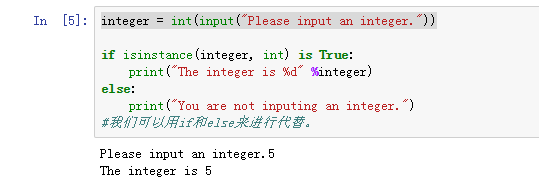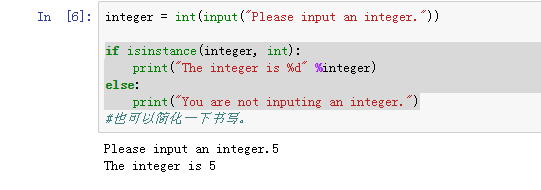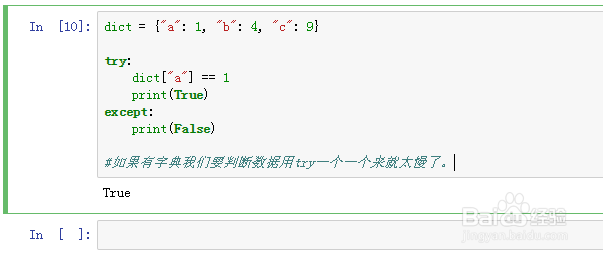python3中怎么减少try语句的使用
1、这里以JUPYTER NOTEBOOK作为示范。新建一个PY文档。

2、try:
integer = int(input("Please input an integer."))
print("The integer is %d" %integer)
except:
print("You are not inputing an integer.")
如果我们要判断用户输入的是整型还是其它数据,可以用try和except。

3、integer = int(input("Please input an integer."))
if isinstance(integer, int) is True:
print("The integer is %d" %integer)
else:
print("You are not inputing an integer.")
我们可以用if和else来进行代替。

4、integer = int(input("Please input an integer."))
if isinstance(integer, int):
print("The integer is %d" %integer)
else:
print("You are not inputing an integer.")
也可以简化一下书写。

5、zero = 0
try:
"100"[-1] == 0
print("The last number is zero.")
except:
print("The last number is not zero.")
如果我们面对一些要判断两个对应的值是否相同,会经常用try。

6、if 100 % 10 == 0:
print("The last number is zero.")
else:
print("The last number is not zero.")
这个时候其实我们就可以用算术的方法去判断是否结尾为0,不需要用到try。

7、dict = {"a": 1, "b": 4, "c": 9}
try:
dict["a"] == 1
print(True)
except:
print(False)
如果有字典我们要判断数据用try一个一个来就太慢了。

8、dict = {"a": 1, "b": 4, "c": 9}
def check(x):
if dict.get(x) == 1:
return True
else:
return False
check("a")
通过定义函数就可以大大缩小代码量。
